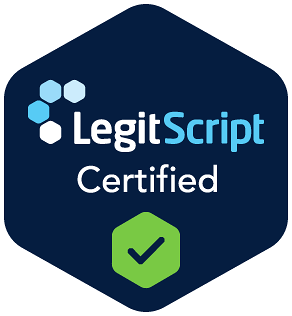You want help that fits real life. You want addiction recovery that lets you live at home, care for family, and keep moving forward at work or school. Outpatient care in New Jersey gives you that path. It is close to New York City, yet calm and private. The right program blends science-based therapies with a caring, small-group feel. It treats addiction and mental health together. It provides family support, relapse prevention tools, and a clear plan for a safe return to work. Evidence-based methods, such as cognitive behavioral therapy, motivational interviewing, and dialectical behavior therapy skills, have a strong research foundation behind them. These tools help you face triggers, build skills, and stay the course over time. You can also step up to residential rehab in NJ if you need it, then step back down when ready. In this guide, you will see how a boutique, evidence-based approach works, why it helps, and what a week looks like. At the end, you will find simple next steps, including an insurance check and a fast call. Keep reading to see how addiction recovery can fit your life today.
What “boutique, evidence-based” really means in addiction recovery

A boutique program is small by design. It keeps groups focused. It knows your name and your story. It is warm, clear, and judgment-free. Evidence-based means the tools are grounded in rigorous research, not hype. It means care is guided by studies and expert practice standards. It also means your plan is measured and refined as you grow.
The science behind this care is solid. Cognitive behavioral therapy helps you spot thoughts and triggers, then practice new steps in those moments. Motivational interviewing strengthens your own reasons for change, which improves engagement and outcomes in outpatient care. Dialectical behavior therapy skills reduce substance use and improve emotion regulation for many people with substance use disorders, especially when strong feelings and urges drive use.
- Small groups make it easier to speak, learn, and feel safe.
- Evidence-based tools are drawn from NIDA and SAMHSA resources and research, not trends.
Why New Jersey near NYC is a smart setting for addiction recovery
Living near New York City gives you access to many services. New Jersey adds a quieter space and an easy commute. You can attend therapy during the week and still sleep at home. You do not have to leave your job or your classes. This helps you practice new skills in your daily life and at work. Real-life practice is key to lasting change.
New Jersey also has substantial public resources and clear pathways to care. The NJ Division of Mental Health and Addiction Services sets policy and supports treatment access statewide. If you need care in New York, the Office of Addiction Services and Supports lists prevention, treatment, and addiction recovery supports across the state.
- Outpatient care near NYC lets you keep routines while getting intensive help.
- State resources like DMHAS, ReachNJ, and OASAS guide access and support across NJ and NY.
Who outpatient care fits, and when residential rehab in NJ makes sense
Intensive Outpatient Programs, often called IOP, are a strong choice if you need structure yet can remain safe at home. Sessions are several days a week, with day or evening tracks. You practice skills, meet with a therapist, and join groups. Many people start here. Others step down to IOP after residential rehab in NJ once cravings and risks have eased.
Residential rehab in NJ is a better fit if you face high medical or safety needs. If you have severe withdrawal risks, lack a safe place to live, or cannot avoid high-risk settings, a 24-hour level of care can be the right first step. After that, most people step down to IOP or standard outpatient. This full continuum is common and supported by best practices.
- Choose IOP if you can stay safe at home and want a strong weekly structure.
- Choose residential rehab in NJ if you need 24-hour care or do not have a stable, safe setting, then step down to IOP when ready.
Core therapies you should expect in an evidence-based addiction recovery program
Great care uses a mix of therapies that work well together. Cognitive behavioral therapy teaches you to map triggers, thoughts, and actions, then swap risky habits for safer ones. It offers long-term benefits that can persist even after sessions conclude. Motivational interviewing invites your voice and values into each step, improving engagement and outcomes in outpatient settings. Dialectical behavior skills add emotion regulation, distress tolerance, and interpersonal tools, which matter when urges are tied to strong feelings (https://pubmed.ncbi.nlm.nih.gov/34337811/).
Good programs also treat mental health at the same time. Anxiety and depression are common and can drive use. Treating both together improves results. Family therapy helps the whole system heal. It teaches support skills and sets healthy boundaries in the home, which lowers stress that can trigger use (https://ntcrc.org/wp-content/uploads/2022/01/TIP_39_Substance_Use_Disorder_Treatment_and_Family_Therapy.pdf).
- CBT targets thoughts, feelings, and actions, with strong evidence in substance use recovery.
- MI increases motivation and retention, which improves outcomes in outpatient addiction care.
The IOP structure that supports real-life change
A well-built IOP blends group therapy, skills training, and individual sessions. Groups focus on education and practice. You learn to plan for challenging moments. You role-play high-risk scenes. You build a peer network. Individual sessions go deeper into your goals. They adjust the plan each week based on what is working.
Many IOPs use a structured, skills-forward model for people with stimulant or polysubstance use. SAMHSA’s Matrix manuals show a mix of early addiction recovery skills, relapse prevention, and family education handouts you can use at home. These are built for real-world practice and are easy to follow between sessions (https://library.samhsa.gov/sites/default/files/sma13-4152.pdf) (https://library.samhsa.gov/sites/default/files/sma15-4154.pdf).
- Expect multiple sessions per week, and homework that you can apply the same day.
- Ask about take-home tools and handouts that support practice between sessions.
Co-occurring care: treating anxiety and depression with addiction
Many people face both substance use and mental health symptoms. Worry, low mood, panic, or trauma can fuel the cycle. Treating both at the same time is best practice. Your plan should include therapy for mood and anxiety, and if needed, medication management with a licensed prescriber. Skills from CBT and DBT help with rumination, avoidance, and intense feelings that often lead to use.
When care is integrated, you do not have to explain your story twice. The team sees the whole picture and can adjust as your symptoms change. This reduces the risk of relapse and improves quality of life.
- Ask for one plan that covers both addiction and mental health needs.
- Look for therapy skills that target anxiety and low mood, along with urges and triggers.
Relapse prevention tools that actually help your addiction recovery
Addiction recovery is a path, not a single event. Slips can happen. The goal is to shorten them and prevent full relapse. Research shows that relapse prevention blends therapy skills, medication when indicated, and ongoing monitoring or support. CBT-based relapse prevention teaches craving management, coping plans, and problem-solving in risky scenes.
Your toolbox should be simple and clear. You should use it at home, at work, and on the go. The best tools fit in your pocket and in your schedule. They help you ride out urges, reset your body, and reach support fast.
- Build a written plan for triggers, warning signs, and early actions.
- Practice urge surfing, paced breathing, and skills to delay and distract in the moment.
Return to work planning without losing your footing.
Going back to work is a big step. A clear plan lowers stress. In the United States, many workers can use the Family and Medical Leave Act for treatment time. FMLA covers leave for substance use treatment when it is provided by or on referral from a health care provider. Time away due to substance use itself is not covered, but treatment time is. Job protections apply if you and your employer meet the rules. New York’s OASAS also offers practical guidelines for return to work readiness after treatment, which can help you and your employer plan duties and supports that match your stage of recovery.
Your care team should help you set work hours that match your program. They can write notes for HR as needed. They can help you set up a private space and time to join therapy if you have a day track. They can also plan how to manage triggers, such as social events or travel.
- Learn your FMLA rights and talk with HR about scheduling and privacy needs.
- Use a graded return plan and clear boundaries to protect early addiction recovery.
Family involvement that heals home life
Addiction affects the whole family. Bringing loved ones into care can reduce conflict and improve support. SAMHSA’s guidance on family therapy in substance use treatment shows gains in communication, problem solving, and relapse prevention when families learn and practice skills together.
Family sessions are not about blame. They are about safety, healthy limits, and connection. Loved ones learn how to respond to urges, what to do in a crisis, and how to support goals without taking over. This reduces stress at home, which in turn lowers the risk.
- Invite at least one loved one to join the education and skills sessions.
- Create a home plan with clear limits, support actions, and crisis steps.
What a week can look like in IOP
A typical week includes several group sessions and one individual session. You might attend in the evening to keep work hours. Groups cover skills, relapse prevention, and mental health topics. The goal is to learn, practice, and apply. You bring wins and stuck points back to the group so the plan can improve.
You also get homework. It can be a trigger map, a thought record, or a coping drill to test in real life. These small tasks add up. Over weeks, you see patterns. You learn what works for you. Your team adjusts the plan with you.
- Plan on regular attendance and daily practice of small skills.
- Expect to review your plan often and set short, simple goals each week.
Practical supports that smooth the path
Addiction Recovery is not only therapy. It is also logistics. A program that fits real life helps with the small things that can get in the way. This includes ride plans, childcare ideas, and a schedule that does not make you choose between health and work. It also includes fast insurance verification, so cost does not stall your start.
. In New Jersey, ReachNJ is a live helpline that connects you to services in your area.
- Ask for help with scheduling, transportation, and insurance checks up front.
- Use trusted directories and helplines to learn about options and levels of care.
Relapse prevention tools you can start using today
Your toolkit should be simple. It should fit into a busy day. Practice these skills now and bring them to the group to refine. Each tool is backed by relapse prevention research that highlights the importance of skills, medications when appropriate, and monitoring as a strong combination for long-term success.
Start with a short plan. Please keep it on your phone. Review it each morning. Please share it with a trusted person. Update it after tough days. Make it a living guide, not a form you forget.
- Write your three biggest triggers. List three actions you will take in the first five minutes when one pops up.
- Build a support list with three people you can text or call, plus one backup number, such as a peer line or helpline.
Return to work playbook.
Work can support your addiction recovery when you return with a clear plan. Talk to your team early. Decide what you will share and what you will keep private. Ask HR about FMLA and any employer support. Many people qualify for schedule changes during active treatment and for follow-up care, such as therapy visits.
Set rules for high-risk parts of your job. If travel, late nights, or client events are risky, plan around them in the early months. Ask for a mentor who can help with stress. Practice quick coping drills you can do at your desk or in the restroom. Your therapist can help you script hard talks and set boundaries that feel respectful and firm.
- Use FMLA or other leave tools to protect your job during treatment, if eligible.
- Share only what you choose to share and build a small circle of support at work.
How to choose the right program near NYC
Look for a calm, private setting that is easy to reach. Ask about group size, clinician training, and how they tailor plans. Ask how they treat co-occurring anxiety or depression. Ask about family sessions. Ask to see handouts and relapse prevention tools. You want care that is simple, practical, and grounded in research.
Also, ask about step-up and step-down options. If you ever need residential rehab in NJ, you should be able to move up a level, then step back down when safe. This flow supports you across all stages of addiction recovery. Programs that follow SAMHSA and NIDA guidance will be able to explain their model in plain language and show you how progress is measured.
- Seek small groups, licensed clinicians, and integrated mental health care.
- Ask for a clear relapse prevention plan and a return to work strategy you can use right away.
Insurance, cost, and fast start
Financial stress can prevent people from seeking care. Do an insurance verification as your first step. It tells you your benefits, copays, and any out-of-pocket limits. It also shows if prior authorization is needed. A good team will walk you through it in plain language. They will help you plan a start date within your budget.
If you do not have insurance or are unsure, use state and federal resources to explore options. ReachNJ can guide residents to services regardless of insurance status and can connect you to treatment and support in your area.
- Verify your insurance and ask for a written summary of costs before you start.
- Use public resources to find local options that fit your situation and budget.
Your next step
Life in recovery can start now. You do not have to pause your whole life to get strong help. You can stay at home, keep your job, and learn skills that last. You can involve your family and your workplace in a plan that fits the real world. You can choose a boutique, evidence-based program near NYC that treats the whole person and supports you step by step.
Suppose you are ready for a caring, small group setting that uses CBT, MI, DBT skills, and family support, and that can coordinate with residential rehab in NJ when needed. In that case, you are in the right place. BlueCrest Counseling offers outpatient programs built for real life in New Jersey. The team delivers compassionate, evidence-based care in a safe and judgment-free environment. You can verify your insurance now and speak with a counselor to map the best fit.
- Call today to speak with a caring specialist.
- Verify Your Insurance to see your benefits and start dates.
- Contact Us for a fast, private consult.




